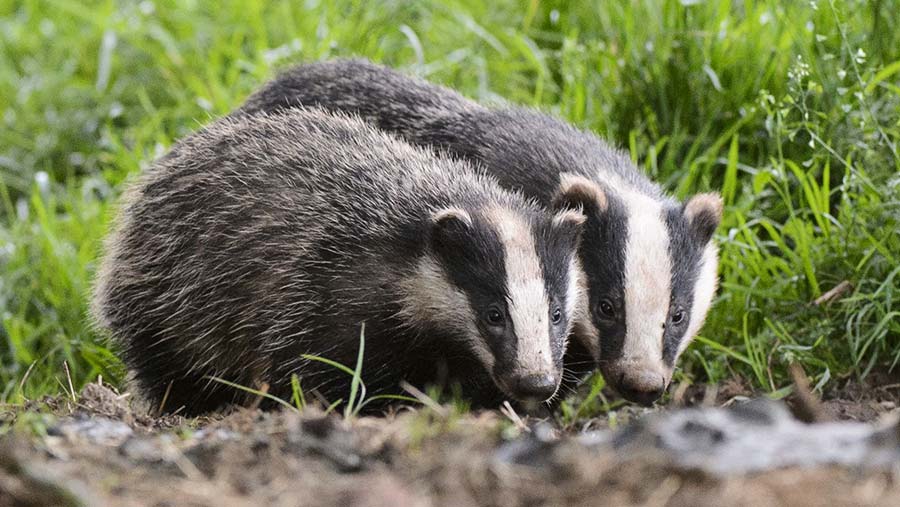Prospect of TB-free status ‘shows strategy is working’
 © FLPA/Andrew Mason/REX/Shutterstock
© FLPA/Andrew Mason/REX/Shutterstock The prospect of TB-free status across more than half of England ahead of schedule shows that the government’s strategy to beat the disease is working, say farm leaders.
However, animal welfare campaigners have condemned figures showing almost 15,000 badgers have been culled to combat bovine TB as a “shocking and grim death toll”.
Defra has announced that low-risk areas of the north and east of England could be granted officially TB-free status two years ahead of the government’s original timetable.
See also: Defra plans long-term badger cull to combat bovine TB
The government says it will apply for the sought-after status in 2017.
NFU president Meurig Raymond said the decision would be a welcome boost for beef and dairy farmers in those areas.
“Gaining this status for the north and east of England ahead of schedule shows the government’s comprehensive 25-year strategy is having an effect.”
“If we are to achieve what everybody ultimately wants – a TB-free England – it is vital that all elements of this strategy are implemented in full in the areas of the country where they will have most impact.”
Successful badger culls
The government announced on Friday (16 December) that badger culls to combat bovine TB in 10 hotspot areas of south and west England had all proved successful.
Some 10,886 badgers were killed this year in 10 zones across Cornwall, Devon, Dorset, Gloucestershire, Herefordshire and Somerset as part of the government’s cull policy.
It brings the total number of badgers killed since the culls started in 2013 to 14,829.
Defra is now consulting on measures that could see continued badger controls in those areas beyond the initial four-year period.
Mr Raymond said he wanted to thank everyone involved with the culls which ensured this year’s culls were completed safely, humanely and effectively.
He added: “If culling is to have the maximum effect on disease, it is vital that it takes place in as much of the area where bTB is rife as possible.
“We will continue to offer help, advice and support to farmers who want to apply for a cull licence in these areas and where culling will have a beneficial effect on disease control.”
Welfare objections
However, culling was condemned as “badgercide” and a “shocking and grim death toll” by animal welfare campaigner Claire Bass, director of the Humane Society International.
She said: “There is no evidence that shooting badgers reduces TB in cattle – in fact, the vast majority of scientists agree this approach actually increases the risk of spreading the disease.
“Shooting thousands of badgers, the majority of whom will not even have TB, is a costly distraction from the real solution to TB in cattle.”
“The truth is, they could wipe out every badger in England, and farmers would still be dealing with TB in cattle.
“It is a disease of cattle, primarily spread by cattle, and it is cattle-focused control measures that will stop it.”
Farmers play their part
Mr Raymond said farmers were continuing to play their part in helping tackle bovine TB through cattle movement controls, cattle testing and improving biosecurity on farm.
They were also by committing their own time, money and effort to helping control the disease reservoir in wildlife in as part of the government’s disease control strategy.
The NFU welcomed the announcement of a coherent plan to manage bTB in non-bovine species which is more in line with current cattle controls, said Mr Raymond.
“It is vital that a comprehensive plan is in place to deal with this disease in all species.
“The NFU was particularly concerned about the proposed compensation levels and lobbied for an appropriate source of valuation data and rates. We are very pleased this has been addressed by Defra.
“We have always said badger vaccination has a role to play in the area on the edge of disease spread to stop it spreading further.
“We welcome the news that the Badger Edge Vaccination Scheme will resume in 2018,” said Mr Raymond
